The internet never blinks an eye. The world begins to take after a net with everybody and everything connected by smartphones and laptops and tablets. A web so closely interlinked to each other does not give time to sleep—a fruitless practice from the pre-digital period.
Yet, until the dreary day comes, we mustn’t belittle the facility and significance of sleep.
This summary will show you that sleep is essential for our well-being in addition to our capability to function. Being sleep-deprived may impact both our personal and societal lives. True, the modern world is restless and fast-moving, but we still need to get sufficient rest to survive and advance.
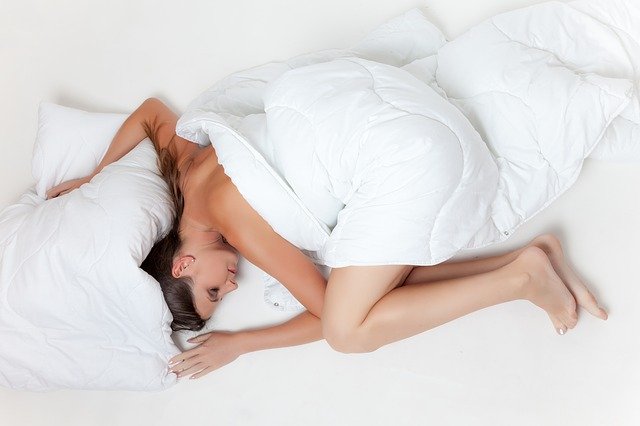
Chapter 1 – For good or ill, our sleeping patterns are mandated by our body clock.
What do you feel when you think about the alarm clock? Do you see it as the loathed, rest-crushing messenger of the day? Or do you get out of your bed before the moment it begins beeping, starting your day with the shining sun?
To be more precise: Why do some people see the morning as a soothing time? And why do others see it as mere torture?
Well, the answer is dependent on your body clock.
Settled somewhere in the folds of your cerebrum is an antique watch, an inner clock that ticks out one’s very own circadian rhythm. The circadian rhythm is a 24-hour cycle, which dictates your body instinctually regardless of alarms or appointments.
It regulates plenty of things. The circadian rhythm is what controls the desire to rest, or the exact opposite of rest. It manages thirst and hunger. It is even accountable, to a degree, for gloominess and emotional peaks and valleys, in addition to the metabolic rate.
Though one thing is worth mentioning: circadian rhythms change depending on the person—and that is the reason why some people hate alarm noises and struggle with health issues.
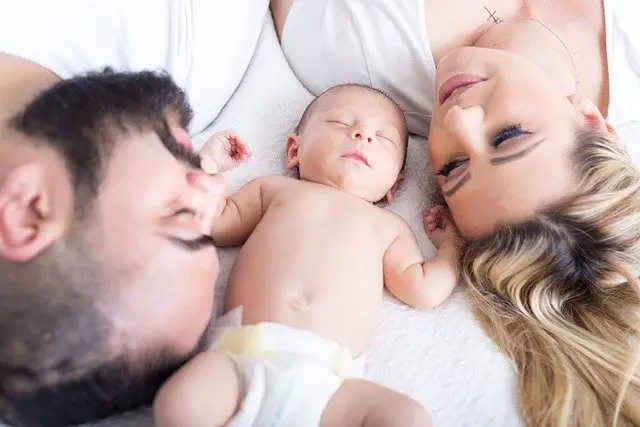
These people, constituting around 30 percent of the population are called “night owls”. Their circadian rhythm creates a tendency to start sleeping late at night and to wake up late in the morning.
Unfortunately for the night owls, society is a morning-oriented entity. Schools and typical workplaces start in the morning until the afternoon, and naturally, the nocturnal people are either asleep or sleepy during the period because of how their bodies are programmed.
Not being able to adapt to society’s schedule creates a rough position for night owls: they must be awake early in the morning despite sleeping at a late hour. So, they frequently feel sleep-deprived, which results in the likelihood of illnesses such as diabetes, depression, and cancer.
Chapter 2 – Not sleeping enough results in high blood pressure and heart disease.
Diet, working out, and rest: the writer used to inform people about the pillars of good health. Now, he takes it further and claims that sleep plays the most important role in maintaining a healthy body.
It is particularly important for cardiovascular health.
Cardiovascular disease, also known as heart disease, is widespread in the West. The treatment costs hamstring the health-care budgets of several countries.
Yet the real cure for such diseases is actually free. People should just sleep more.
A research conducted in 2011 observed more than 500,000 people from eight countries. The participants were selected from both genders, from various age groups and ethnicities, and the overall conclusion was that sleep-deprived people had higher risks of getting cardiovascular diseases or dying from them by 45 percent.
A different study traced working Japanese men over the course of 14 years. The conclusion was that those who slept six hours or less during nighttime were 500% more inclined to experience a cardiac arrest than their counterparts who were able to sleep more.
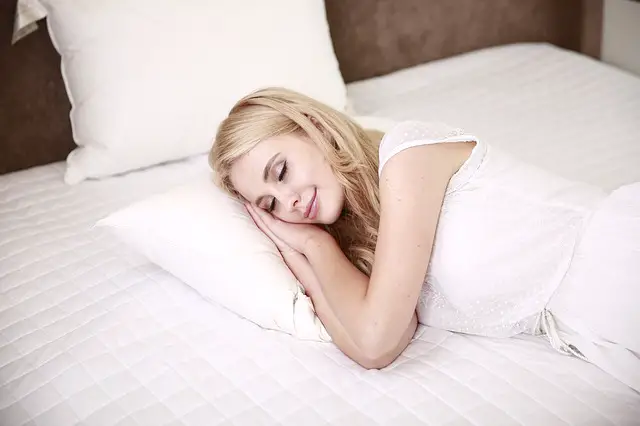
Even if we count other factors that lead to heart problems –like smoking or obesity—we still cannot deny the powerful connection between sleep deprivation and cardiovascular disease.
But why does sleep deprivation lead to more heart problems? Well, the reason behind such diseases is related to blood pressure.
During days you do not rest enough, the pressure in your veins goes up. Even four or five hours of sleep make you restless enough to increase your blood pressure. After building up for years, the effects of increased pressure start to show: the walls of the blood vessels stretch and become impaired.
It’s generally well-known that hypertension results in many deaths—seven million per year, to give an accurate number—yet most people are unaware that they can avoid such problems if they sleep more.
Chapter 3 – All animals need sleep, but the amount of sleep they need differs depending on the species.
Were you aware of the fact that sharks don’t close their eyes? The deep-sea murderers do not shut their eyes at all. Don’t be confused though, their open eyes don’t mean they don’t sleep. They just don’t have eyelids.
Indeed, we haven’t seen an animal species which doesn’t sleep. Besides, the amount of sleep they need depends on the species.
Let’s take elephants as an example, they need around four hours of sleep a day. Big cats like lions and tigers, on the contrary, sleep about three times more than elephants, which is about 15 hours. And us humans, as you are probably aware, need to sleep around eight hours per day. And the world’s sleepiest animal, the brown bat, rests such a long time that its waking day is only five hours.
Why do some animals require more sleep than others? We still have no idea.
Their size or diet has nothing to do with the amount of sleep animal species get. Being nocturnal or diurnal also has nothing to do with it. For example, both squirrels and degus are classified as Rodentia—yet degus sleep 7.7 hours while squirrels require more than 14 hours.
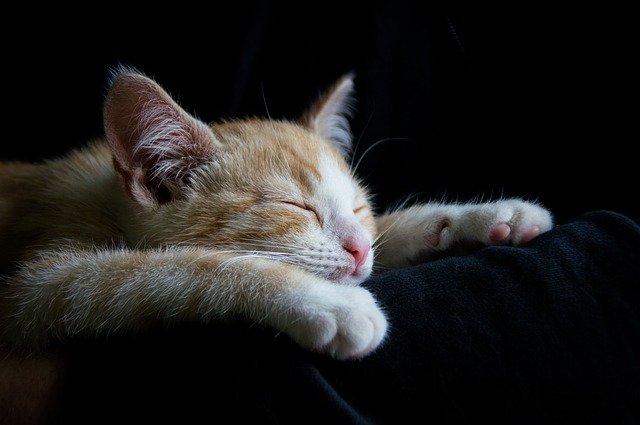
If the difference in sleep duration of animals wasn’t shocking enough, let us inform you that the way animal species sleep also differ.
To give an example, studies discovered that there are merely two species of animals that engage in rapid-eye-movement (REM) sleep: mammals and birds. During REM sleep, the snoozing animal experiences a dream, and its body becomes unable to move in order to prevent acting out during dreams. But other species –such as reptiles, fish, insects and alike—do not enter REM sleep at all. What this means, is that while your dogs dream regularly, your pet ball python will never experience such dreams in its life.
However, there is a special case among mammals: apparently, whales, and dolphins along with other aquatic mammals, do not enter REM sleep. The possible cause for this is probably because their paralysis would mean they would drown.
However, there’s a special case: apparently, whales along with other aquatic mammals don’t experience REM sleep, as paralysis during dreams would result in drowning.
Chapter 4 – Driving while being sleep-deprived is as life-threatening as drunk driving.
The things humanity can do in order to become famous can be unbelievably crazy. And a list of these insane achievements can be found in The Guinness Book of World Records. But particular categories that the book checked were either life-threatening or disgraceful, so they are no longer recorded. Can you guess one of those categories? Sleep deprivation.
Lack of sleep is definitely not a good thing for you personally. What is worse, it can also turn you into a threat to others, specifically when your job is to operate a vehicle.
If you sleep less than seven hours a day, and the chances of you getting involved in an incident increase considerably.
Seven hours of sleep seems like it is not too less, right? True. Still, it is sufficient to make your body try to recover the missing time by entering a microsleep, which is a session lasting around a few seconds.
The only difference between microsleep and normal sleep is the duration. This means that during a microsleep, a person doesn’t have control of motor functions. So, in cases of driving, it means that the driver has no way of giving attention to the road.
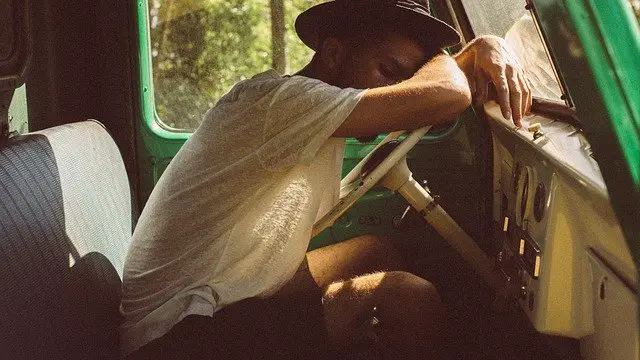
Even when the driving speed is somewhat low –let’s say 30 miles per hour— only two seconds of microsleep would end up with the car swaying from the lane. Indeed, just two seconds is enough to cause a major accident.
Still, a microsleep while driving isn’t the sole danger of lack of sleep. Driving while drowsy poses the same threats as drunk driving.
Let’s rethink this Australian study. Participants were split into two groups. One group received enough alcohol until they became drunk (meaning the alcohol concentration was slightly above 0.05). The other group didn’t sleep for a night.
The results? Not so surprisingly, the sleepless group, people who hadn’t rested for 19 hours, did as badly as the drunk ones in the concentration test.
So, try to remind yourself about this when you’re out late. You may have refrained from alcohol but driving while sleep-deprived is almost as irresponsible.
Chapter 5 – Sleepwalking kills – and the culprit is not dreaming.
In 1987, Kenneth Pars from Canada walked to his car without his shoes and drove to the house of his mother-in-law during nighttime. Upon arriving, he entered the house, got himself a knife, and stabbed her to death. While on his way home he came to an awful realization: he woke up.
Parks killed someone while he was totally asleep, and cases like his motivate the author to claim that there are few medical fields that include as shocking a variety of disorders as sleep studies. His claim is bold, but when you think about cases like Parks’ case, the claim doesn’t seem so far off.
Parks knew about his history of sleepwalking. When he awakened from his slumber in the car, he wasn’t too shocked to see himself covered in blood. He drove to the police station straight away and told the officers that he was afraid he might have killed someone, despite not knowing who.
Parks was found guilty of homicide, but after the jury learned about his sleepwalking history he was acquitted.
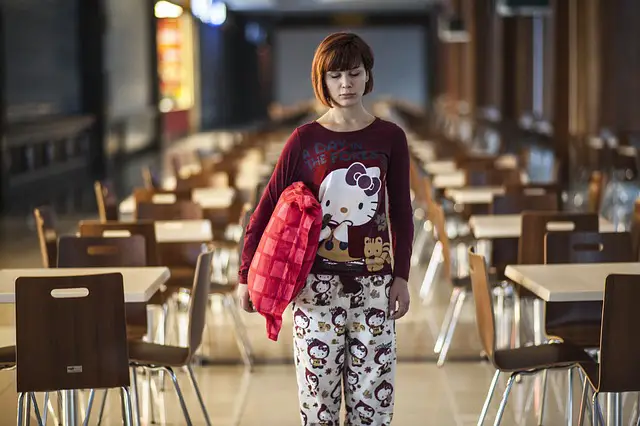
Well, it is worth mentioning that often sleepwalking doesn’t cause harm, and Parks’s case is definitely an exception. Another thing to mention is that people most likely aren’t dreaming while sleepwalking.
It would be plausible to think that Parks was dreaming of homicide while stabbing his mother-in-law. Yet the evidence suggests otherwise.
Indeed, studies show that people don’t walk during REM sleep, where we start dreaming. When awakened from a session of sleepwalking, people describe a total blank.
Weirdly enough, this situation may help us understand why sleepwalking is more common in children. They simply don’t spend as much time in the REM stage as adults, so they have more time to sleepwalk.
Chapter 6 – Let’s say you want a night of better sleep. You should get a nice amount of sunlight, and refrain from certain substances.
Most people don’t sleep for eight hours. Even if they do, the sleep quality is not really high. We toss and turn, or our sleep gets disrupted. Our minds are always working, contemplating the emails we didn’t answer, the upcoming deadlines, and the never-ending posts on social media.
The author provides some advice that will help people get a good eight hours of undisrupted sleep.
First of all, you may want to refrain from some things like alcohol and nicotine.
While a night of drinking feels comforting and unwinding, alcohol hinders your body from experiencing deep sleep. And drinking heavily can disturb your breathing while you sleep. What is more, people usually wake up right after the effects of alcohol start to disappear, and that is actually counterproductive considering you drink alcohol to relax before sleeping.
Nicotine will also disturb your sleep. Smoking may make you feel relaxed like drinking. But in contrast to alcohol, nicotine is a stimulant. So, smokers are inclined to sleep lightly, and as a result of nicotine withdrawal, their waking-up time is also earlier than they’d prefer.
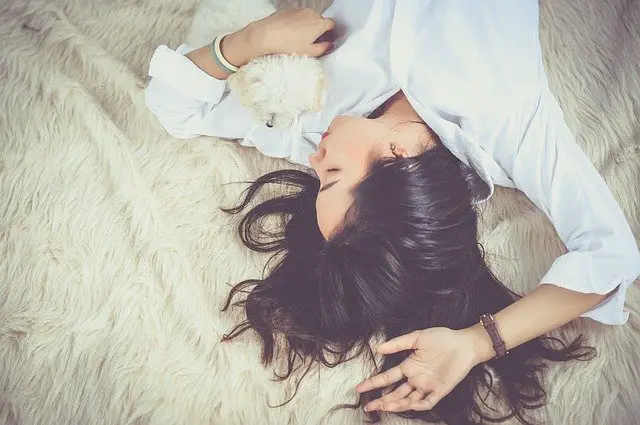
Besides refraining from these substances, you can also try new sleep-inducing routines during day and night.
Take a nice hot bath before sleeping, for instance. The bath will help you relax both physically and mentally. The way your body temperature drops after stepping out of the bathroom will also help you feel sleepy.
Another thing you should do is get sufficient natural sunlight during the day. Enough sunlight will help your body regulate your bodily clock. Another tip is to open your curtains before getting into the bed, so, whenever the sun rises, you will wake up. Finally, try to keep the room temperature a bit low.
With these tricks, you will be able to sleep uninterruptedly for eight hours!
Why We Sleep: Unlocking the Power of Sleep and Dreams by Matthew Walker Book Review
All animals need to sleep. It really is the most important factor behind good health. If we get sleep deprived, we risk struggling with diseases and lack of concentration. To be healthy and productive, we should give attention to our body’s internal clock that tells us how much and when we should sleep. If you have problems sleeping, stay away from alcohol and nicotine, and have a warm bath before sleeping.
If you still can’t sleep, then get up.
You probably have lain at night wide awake, staring through the darkness in your room, feeling anxious because you will be too exhausted tomorrow. But you’re not doing anything beneficial by waiting to sleep like that. As ironic as it is, worrying about not being able to sleep makes you even more awake. What you should do is, set a timer about how much you’re going to wait until you sleep. After the time passes, if you’re still unable to sleep, get up, do something that makes you relaxed until you feel drowsy.
